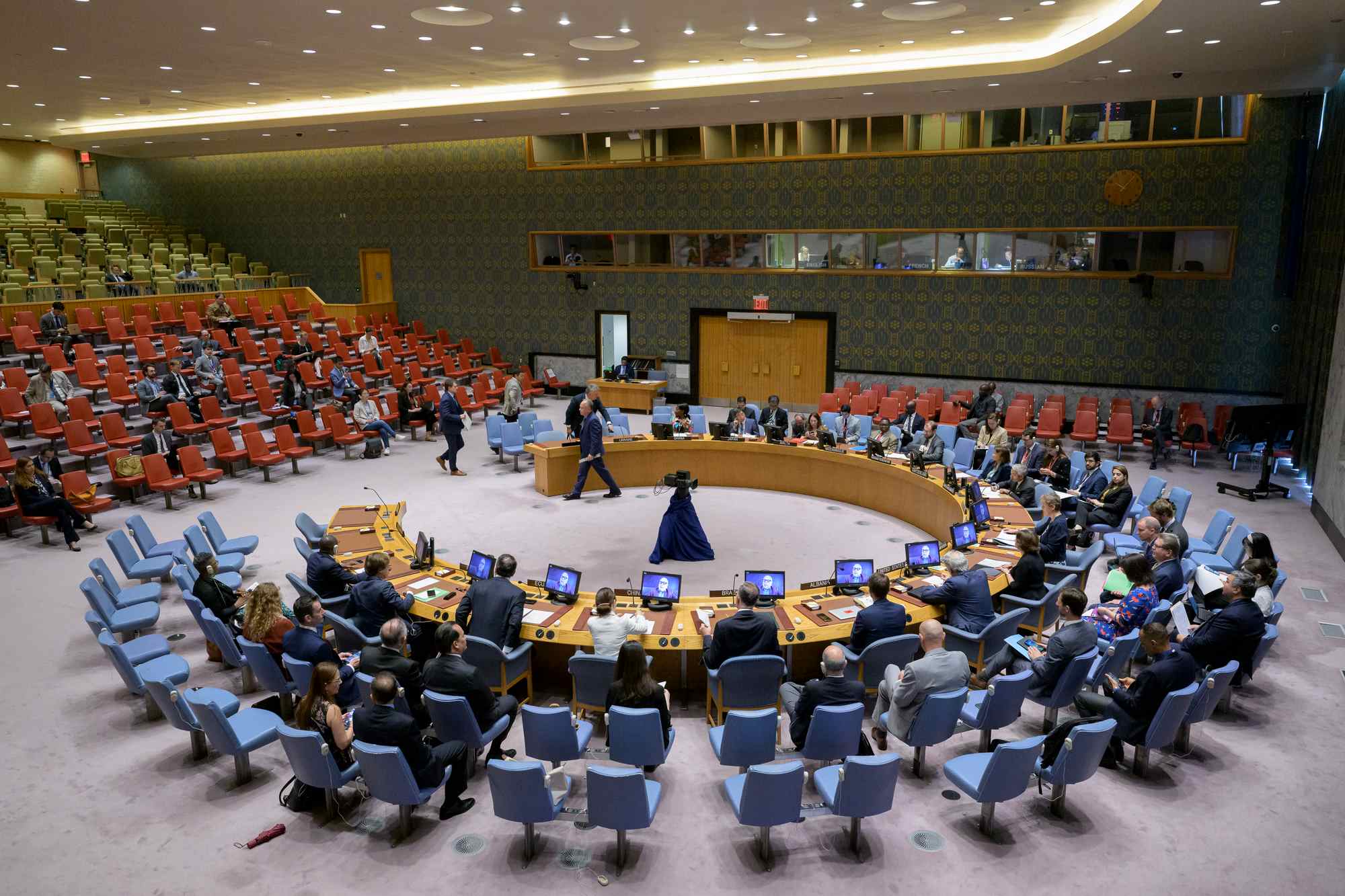
In a landmark speech at the launch of the Policy Brief on a New Agenda for Peace, United Nations Secretary-General on July 20 emphasized the urgent need for multilateral efforts to address global challenges and promote peace and security in a world in transition. The Policy Brief, a part of the Our Common Agenda initiative, outlines an extensive set of recommendations aimed at tackling pressing issues and fostering cooperation among nations.
Speaking to a gathering of Excellencies, Ladies, Gentlemen, and distinguished guests, the Secretary-General highlighted the critical juncture the world finds itself in, signaling the end of the post-Cold War period and the rise of a multipolar global order. He stressed that the current geopolitical landscape is characterized by heightened tensions and major power competition, with increasing violations of international law and a growing sense of skepticism about the effectiveness of the multilateral system among Member States.
The Secretary-General expressed deep concern over the complex and deadly conflicts that have emerged in recent times, leading to a surge in conflict-related deaths. The resurgence of concerns about nuclear war and the potential weaponization of emerging domains and technologies further exacerbate the threats faced by humanity. The ongoing COVID-19 pandemic has exacerbated inequalities within and between states, while terrorism continues to pose a global scourge.
He acknowledged that peacekeeping efforts have saved millions of lives, but also highlighted the limitations faced by the United Nations in resolving longstanding conflicts due to complex factors and a lack of adequate resources and political support.
The Policy Brief on the New Agenda for Peace proposes five priority areas for action:
1. Strengthening Prevention and Diplomacy: The Policy Brief calls for bolstering global prevention measures to address strategic risks and geopolitical divisions. This includes urgent commitments by States to pursue nuclear disarmament and arms control, preventing the proliferation of nuclear weapons, and investing in regional security architectures to rebuild trust among nations.
2. Promoting Peaceful Societies and Sustainable Development: The Secretary-General emphasized the need for a paradigm shift in preventing conflict and violence. The brief highlights the importance of mediation, social cohesion, and the intersection between sustainable development, climate action, and peace in preventing the seeds of war from taking root. He stressed the vital role of education and healthcare in strengthening human security and called for gender equality and the elimination of violence against women.
3. Updating Peace Operations: The Policy Brief calls for a reflection on the future of UN peacekeeping operations to make them more adaptable and focused on political solutions. It emphasizes the need for clearer mandates and sufficient resources, while also recognizing the importance of peace enforcement missions in countering non-state armed groups and terrorist threats.
4. Preventing Weaponization of Emerging Technologies: The Secretary-General stressed the importance of responsible innovation and urged Member States to address new threats posed by emerging technologies, such as artificial intelligence and cyberspace. The brief recommends the prohibition of lethal autonomous weapons systems and the development of norms, rules, and principles around military applications of AI.
5. Enhancing Collective Security Machinery: The Policy Brief highlights the need for urgent reforms to the Security Council to make it more just and representative. It also proposes revitalizing the General Assembly and reforming disarmament machinery to address global financial architecture injustices.
The Secretary-General concluded by calling for Member States to engage with the recommendations in the Policy Brief and emphasized that the United Nations must remain central to multilateralism to tackle the challenges of the present and the future. He urged nations to act now and work together to create a stable and secure world for all.
The Policy Brief on a New Agenda for Peace is part of the Secretary-General’s commitment to link actions for peace with the Sustainable Development Goals, promoting a vision of a more peaceful, secure, and sustainable world. The UN Summit of the Future next year will provide an opportunity for Member States to address critical risks, fulfill unmet commitments, and restore trust in multilateral action through a Pact for the Future that updates global systems and frameworks to meet the challenges of the times.

